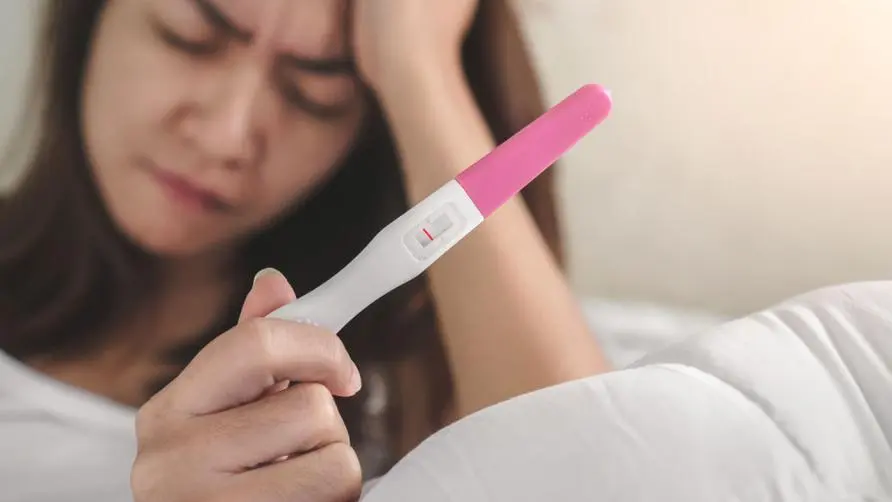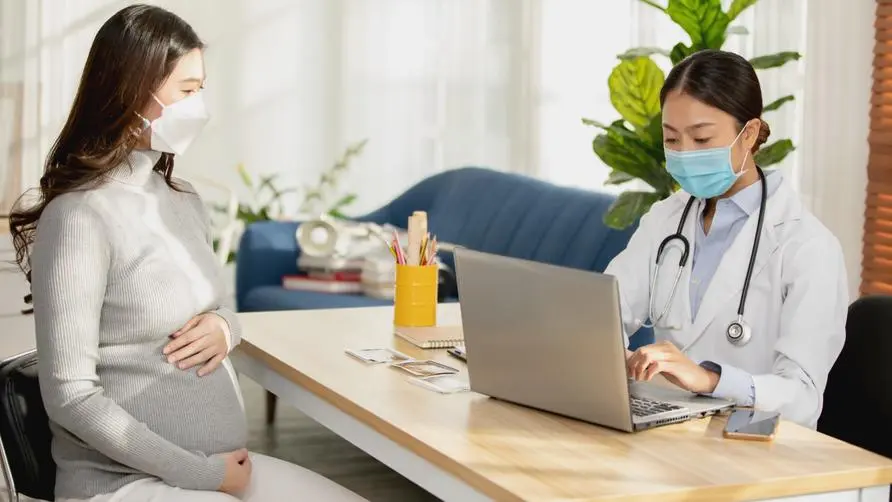Can women get the COVID-19 vaccine when they are menstruating? Is bleeding more likely after vaccination? Which vaccine is safer for pregnant women?

The epidemic in Taiwan has gradually slowed down, and the number of confirmed cases of COVID-19 has remained in single digits since August. However, the vaccination rate is far lower than that of the United States, South Korea and other countries. Due to the low resistance of pregnant women, obstetrics and gynecology have previously called for pregnant women to be given priority in vaccination with the mRNA vaccine. The Epidemic Command Center also announced on August 3 that it would target the first to third categories of people and pregnant women and adults over 65 years old. A total of 519,000 people, including Category 9 people over 55 years old, can receive the Moderna vaccine in the fifth round. Although Taiwan’s “vaccine shortage” is gradually easing, news of sudden death after vaccination has aroused public concern. In addition, the adenovirus vaccine has extremely rare risks of blood clots. There are also voices on the Internet starting to discuss whether women should be safe when menstruation comes. Discussion of appropriate vaccinations. The answer from the intensivist is: “It is safe to be vaccinated during menstruation”!
Women’s menstruation does not affect vaccination, but women may experience “temporary red flush” after vaccination
Dr. Huang Xuan believes that women can certainly get vaccinated when menstruation comes. According to the vaccination matters announced by the Taiwan Ministry of Health and Welfare, women’s menstrual period is not a taboo for vaccination; women during menstruation can safely receive the COVID-19 vaccine if they have no obvious discomfort on the day of vaccination; but if If the menstrual pain is very painful on the day of vaccination, of course, the priority should be to resolve the menstrual pain. It is not too late to give the injection after the menstrual pain has passed.
Dr. Huang Xuan then added the Japanese study on the relationship between HPV vaccine and female menstruation: We all know that the menstrual cycle is a natural body process, and the immune response in the body will not be reduced or restricted due to the onset of menstruation, while women’s pregnancy Hormones such as progesterone and estrogen will fluctuate before menstruation, which may cause premenstrual syndrome, but have no effect on immunity. Dr. Huang Xuan emphasized that even if a woman stops menstruating, it will not affect the effectiveness of the vaccine. There is no direct correlation between menstruation and vaccination, and women can be vaccinated with confidence.
However, does the COVID-19 vaccine have an impact on “post-vaccination menstruation”? A British study once found that among about 6,000 women, a small number of postmenopausal women, as well as women who stopped menstruating due to taking hormones, experienced “temporary red flushes” after receiving the COVID-19 vaccine. Previous clinical experience has also shown that A similar situation occurs when getting a flu shot or cervical vaccine. Dr. Huang Xuan explained that a woman’s endometrium is also part of the immune system. After vaccination, any chemical signals that may affect immune cells will circulate in the woman’s uterus, causing the endometrium to thicken. When the thickness increases, it may cause the endometrial layer to peel off, causing light bleeding or early menstruation. Basically, it will not weaken or invalidate the effectiveness of the vaccine. If female friends are really worried about their physical condition, they can seek further consultation with an obstetrician and gynecologist.
There is no direct relationship between vaccination and miscarriage. Pregnant women may be more likely to be diagnosed.
As for whether vaccination is related to miscarriage or premature birth? According to a paper in The New England Journal of Medicine, there is no direct link between the administration of the mRNA vaccine and miscarriage in pregnant women; on the contrary, the U.S. Centers for Disease Control and Prevention (CDC) points out that pregnant women suffering from The probability of COVID-19 is higher than that of ordinary women, which may be related to physiological changes during pregnancy, including increased heart rate and oxygen consumption, reduced vital capacity, changes in immune cells, and other factors. Pregnant people must take preventive measures and consider giving priority to vaccination.
The Taiwan Ministry of Health and Welfare recommends that those who are pregnant or planning to become pregnant, have special diseases, a history of drug or food allergies, immune dysfunction, bleeding problems, fever, or infections, should first be evaluated by a doctor before deciding whether to proceed. Vaccine administration. All in all, vaccination will not affect women who are menstruating. However, if you really feel uncomfortable on the day of vaccination, or you have a history of chronic diseases, you should remember to check your physical condition and contact 1922 before going to the vaccination clinic. Hit the spot. In addition to common vaccine side effects, if pregnant women experience any unusual discomfort after vaccination, it is recommended to immediately report the disease to the CDC or health unit and receive early diagnosis and treatment.
Source:





